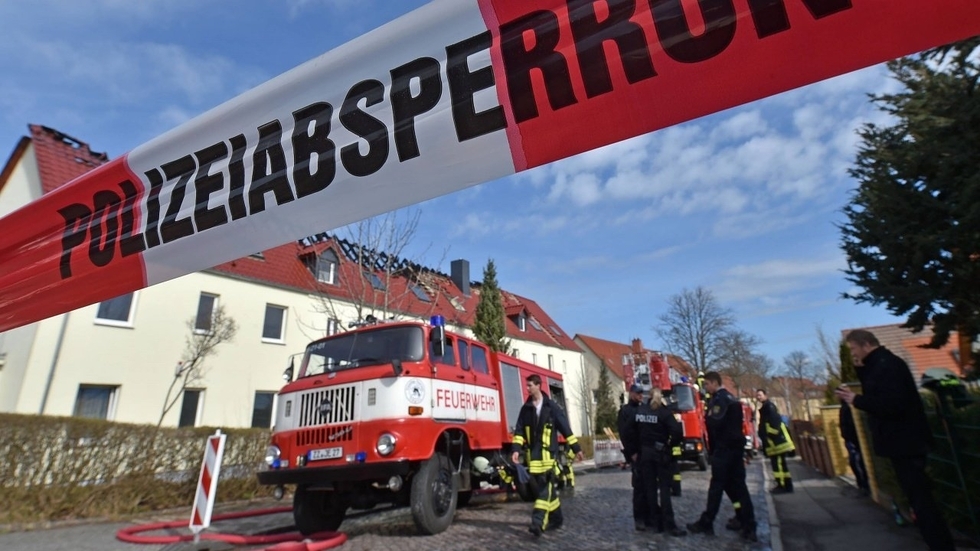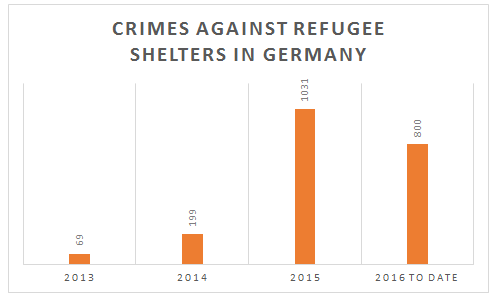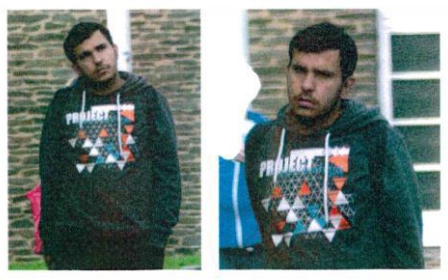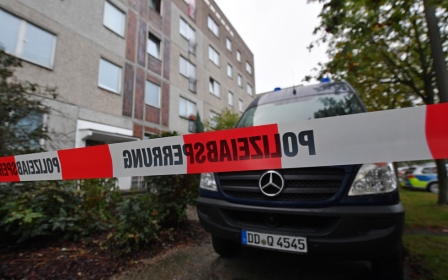800 crimes against German refugee shelters so far this year

There have been nearly 800 crimes against refugee shelters in Germany so far this year, police said on Wednesday, as the arrival of record numbers of asylum seekers continues to cause deep divisions.
Police have so far received reported of 797 crimes against refugee shelters across the country, local news site Der Westen quoted police figures as showing.
There were 137 violent attacks, 320 cases of property damage and 180 instances of extremist right-wing propaganda being distributed.
There have also been 61 reports of arson against refugee shelters so far this year. In ten separate cases, explosive materials were used.
The figures suggest that an explosion in attacks on known sites of refugee shelters is continuing since an unprecedented influx of asylum seekers that began in 2014.
Last year saw more than 1,000 incidents reported, an increase of over 400 percent.
Investigators told Der Westen that, while the vast majority of crimes were perpetrated by known neo-Nazi or far-right sympathisers, some were carried out by people previously unknown to police, suggesting that they had recently become “radicalised”.
Germany has been a primary destination country for asylum seekers, many of them fleeing war in Syria and Iraq, since 2012.
Last year a total of 442,000 people sought asylum there, or one for every 540 citizens.
This year has seen a sharp drop in the number of applications, with Chancellor Angela Merkel spearheading a controversial deal with Ankara in March that has seen Turkey agree to step up measures to stop boats leaving bound for Greece and take back asylum seekers turned back from Europe.
Despite the drop in numbers, far-right political and vigilante groups have continued to gain support across Germany.
The far-right Alternativ fur Deutschland party, whose leader last week likened Germany to a multicultural “compost heap,” scored an embarrassing victory over Merkel in September, coming ahead of her Christian Democratic Union party with over 20 percent of the vote in the eastern state of Mecklenburg-Vorpommern.
Groups that operate outside the official political sphere have also seen a marked rise in membership – thousands of people marched through Dresden this week to mark two years of PEGIDA, the anti-Islam movement.
Middle East Eye propose une couverture et une analyse indépendantes et incomparables du Moyen-Orient, de l’Afrique du Nord et d’autres régions du monde. Pour en savoir plus sur la reprise de ce contenu et les frais qui s’appliquent, veuillez remplir ce formulaire [en anglais]. Pour en savoir plus sur MEE, cliquez ici [en anglais].





